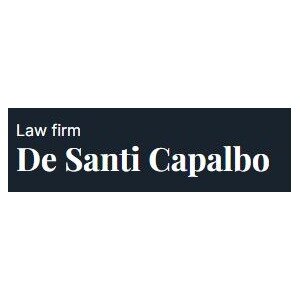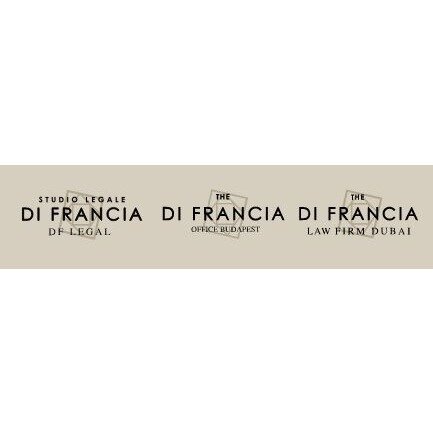Best Tax Increment Financing Lawyers in Bologna
Share your needs with us, get contacted by law firms.
Free. Takes 2 min.
List of the best lawyers in Bologna, Italy
About Tax Increment Financing Law in Bologna, Italy
Tax Increment Financing (TIF) in Bologna, Italy, is a strategic financial tool utilized to stimulate economic development and urban revitalization. By capturing the future increase in property tax revenues within a designated area, Bologna's municipal authorities aim to fund public infrastructure improvements and promote private investment. Unlike other financing methods, TIF allows for redevelopment projects to occur without raising taxes, as the increased property values generate the necessary funds for repayment over time. Understanding the local specificities of TIF is crucial, as it involves intricate interactions between public policy, economic strategy, and urban planning.
Why You May Need a Lawyer
Engaging a lawyer experienced in Tax Increment Financing can be crucial for several reasons. Firstly, individuals, businesses, or developers unfamiliar with TIF may need expert guidance to understand the complexities and requirements of the program. Secondly, legal counsel can assist in navigating the regulatory framework, drafting and reviewing contracts, and ensuring compliance with local and national laws. Additionally, disputes over property assessments, zoning, or project financing might necessitate legal representation to protect one's interests. Lastly, for any negotiations with governmental authorities or stakeholders, having a lawyer ensures clear communication and legal certainty.
Local Laws Overview
The legal framework governing Tax Increment Financing in Bologna encompasses various local and national regulations. Key aspects of these laws include defining eligible TIF districts, the approval process for TIF plans, and the permissible uses of TIF funds. Furthermore, the legal provisions detail the roles and responsibilities of public and private entities involved in TIF projects, including specific requirements for project transparency and accountability. It's also essential to be aware of any environmental impact assessments or community consultations mandated by law. Familiarity with these legal aspects is vital for anyone considering engaging in a TIF project in Bologna.
Frequently Asked Questions
What is TIF and how is it typically used in Bologna?
TIF is a public financing method that supports economic development. In Bologna, it is often used to fund infrastructure improvements and stimulate private investment by capturing future property tax revenues.
Who can initiate a TIF project?
TIF projects can be initiated by municipalities, developers, or other entities that meet the criteria set forth by Bologna's local TIF framework.
What types of projects are eligible for TIF funding?
Eligible projects typically include infrastructure improvements, commercial or residential developments, and public amenities that promote economic growth and revitalization of underdeveloped areas.
How are TIF districts established in Bologna?
TIF districts are established through a proposal and approval process involving local government authorities, which assess the potential for economic growth and increment generation.
How is the increment in tax revenues calculated?
The increment is calculated based on the difference between the current property tax revenue and the projected revenue after development within a TIF district.
What are the risks associated with TIF?
Risks include overestimating future tax increments, potentially leading to insufficient funds to cover the debt or financial instability for the local government if development fails to yield expected results.
Can TIF financing be combined with other financial incentives?
Yes, TIF can be combined with other incentives such as grants, tax abatements, or low-interest loans to enhance project feasibility.
How long do TIF districts typically last?
The duration of a TIF district can vary, generally lasting 15 to 30 years, or until the debt is repaid through increment revenues.
What role does public input play in the TIF process?
Public input is often sought during the planning stage, with community consultations ensuring transparency and alignment with local interests.
Are there any reporting requirements for TIF projects?
Yes, reporting requirements include regular updates on project progress, financial performance, and compliance with development and funding agreements.
Additional Resources
For additional support, consider reaching out to the following resources in Bologna:
- The Bologna City Council - Economic Development Department, for guidance on local TIF regulations and district plans.
- Italian Ministry of Economy and Finance, which publishes information on national policies impacting TIF.
- Local legal firms specializing in urban development and public finance.
- Chambers of Commerce, offering insights into business opportunities and incentives.
Next Steps
If you need legal assistance regarding Tax Increment Financing in Bologna, begin by consulting with a law firm or lawyer with specialized knowledge in TIF and urban development. Prepare documentation concerning your project and potential TIF district, and schedule an initial consultation to discuss your legal needs. Consider conducting a preliminary assessment to understand the potential economic impacts and benefits of pursuing TIF for your project. This strategic approach will help ensure that you are well-prepared to navigate the legal and regulatory landscape of TIF in Bologna.
Lawzana helps you find the best lawyers and law firms in Bologna through a curated and pre-screened list of qualified legal professionals. Our platform offers rankings and detailed profiles of attorneys and law firms, allowing you to compare based on practice areas, including Tax Increment Financing, experience, and client feedback.
Each profile includes a description of the firm's areas of practice, client reviews, team members and partners, year of establishment, spoken languages, office locations, contact information, social media presence, and any published articles or resources. Most firms on our platform speak English and are experienced in both local and international legal matters.
Get a quote from top-rated law firms in Bologna, Italy — quickly, securely, and without unnecessary hassle.
Disclaimer:
The information provided on this page is for general informational purposes only and does not constitute legal advice. While we strive to ensure the accuracy and relevance of the content, legal information may change over time, and interpretations of the law can vary. You should always consult with a qualified legal professional for advice specific to your situation.
We disclaim all liability for actions taken or not taken based on the content of this page. If you believe any information is incorrect or outdated, please contact us, and we will review and update it where appropriate.














